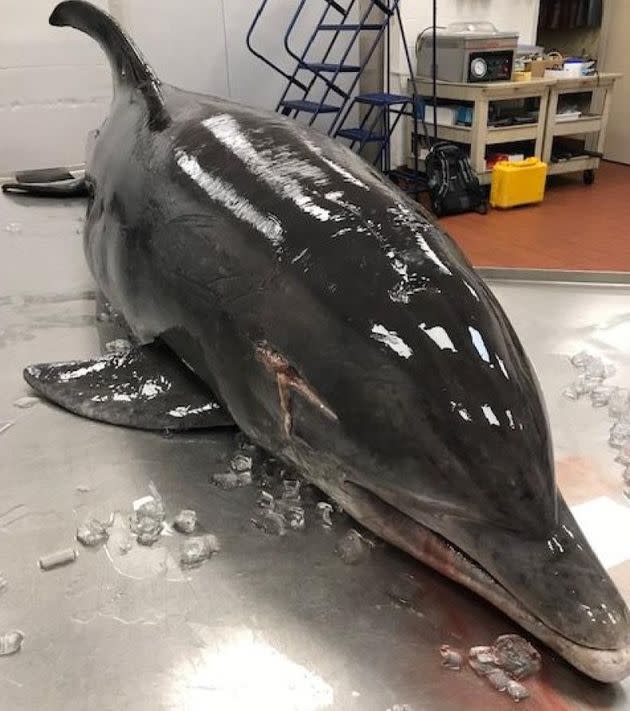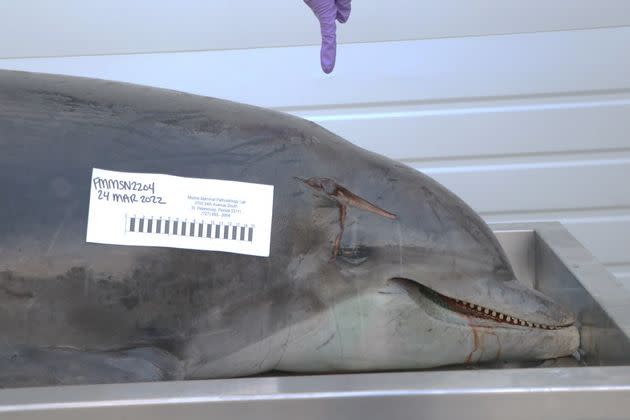Feds Seek Information On Dolphin Found Stabbed On Florida Beach

Federal wildlife officials are seeking information into the recent stabbing of a bottlenose dolphin whose body was found on a South Florida beach. (Photo: fisheries.noaa.gov)
Federal wildlife officials in Florida are seeking information into the brutal stabbing of a bottlenose dolphin whose body was found on a Gulf of Mexico beach late last month.
A necropsy of the marine mammal, which was discovered in Fort Myers Beach on March 24, determined that it was impaled in the head with a spear-like object while still alive, the National Oceanic and Atmospheric Administration said in a statement last week.
A photo released by the agency shows a large gash just above what appears to be the dolphin’s right eye.
“Based on the shape, size and characteristics of the wound, it is suspected that the dolphin was impaled while in a begging position,” the organization said, adding that the dolphin was lactating at the time of its death.

A necropsy of the marine mammal determined that it was impaled in the head with a spear-like object while still alive, the National Oceanic and Atmospheric Administration said. (Photo: fisheries.noaa.gov)
There were no updates on the investigation as of Wednesday, officials told HuffPost.
Begging is not a natural behavior for dolphins and is frequently associated with illegal feeding by humans. Giving dolphins food puts them and humans in harmful situations, with a potential risk of boat strikes, fishing line entanglement, and injuries from propellers, wildlife officials said.
One small study on this behavior in 2016 also found that dolphins that begged for food in the wild spent a significantly smaller amount of time foraging compared to non-begging dolphins. They also traveled more than non-beggars, indicating altered natural behavioral patterns.
“Once they learn that (behavior), they also teach it to other dolphins and they teach it to their babies,” Laura Engelby, the marine mammal chief of NOAA’s Southeast Regional Office, told local Fort Myers station WBBH-TV.
Under the federal Marine Mammal Protection Act, it is illegal for U.S. citizens to harass, hunt, capture, collect or kill a dolphin. Anyone found guilty of violating the act could face up to $100,000 in fines and up to one year in jail per violation.
Since 2002, NOAA said at least 27 dolphins in the Gulf of Mexico have been found stranded on a beach with evidence indicating they had been shot by guns or arrows, or impaled with sharp objects.
Anyone with information about the dolphin killing is asked to call the NOAA Enforcement Hotline at (800) 853-1964.
This article originally appeared on HuffPost and has been updated.
